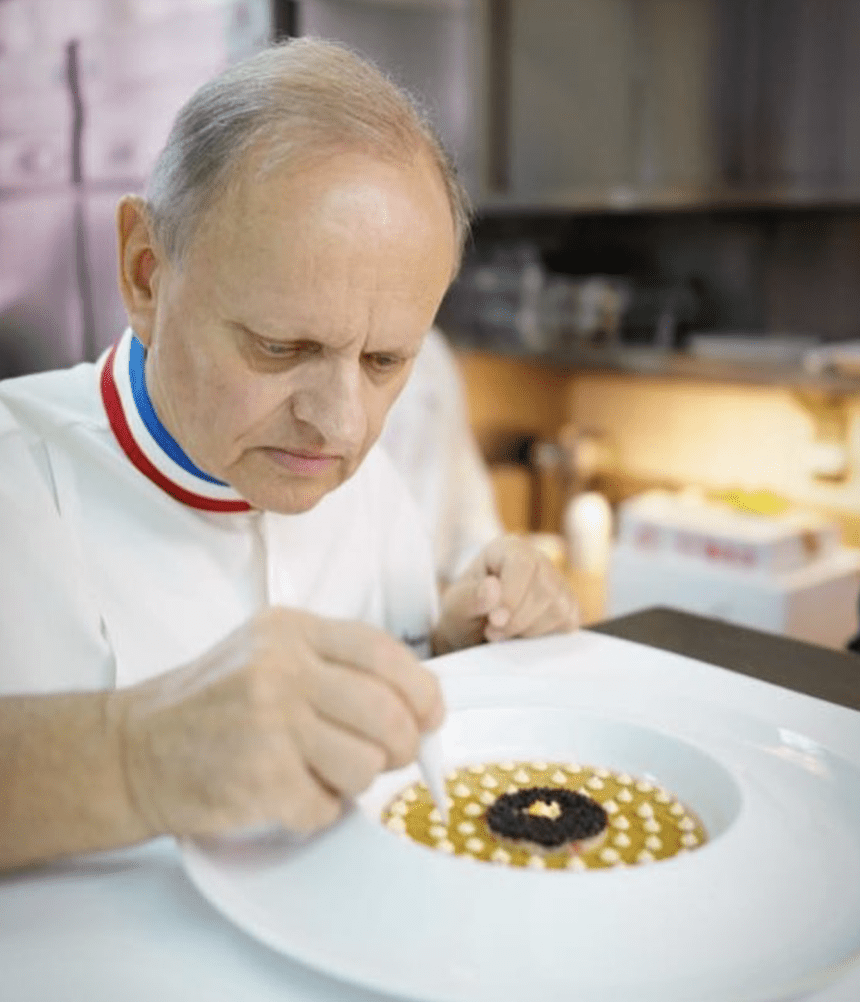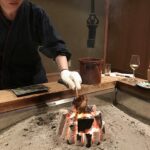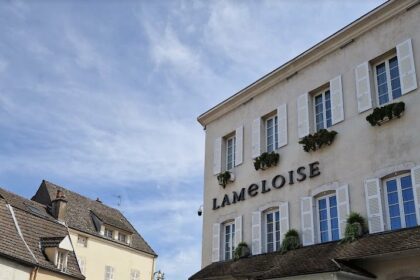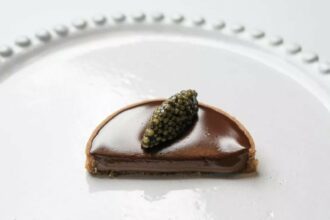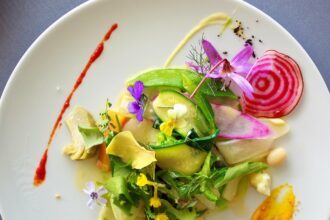It is no wonder that I revere Guy Gateau. In a remarkable twist of fate or coincidence he prepared the cuisine at both my all-time favorite bistro and formal restaurant: Le Petit Coin de la Bourse in the Paris IVth and Restaurant Alain Chapel in the outskirts of Lyon. About 15 years ago, I tracked Guy down when I was doing some research into Alain Chapel after I saw Guy’s name in a photo caption in the magnificent and detailed book from 1978 “Great Chefs of France”. We have had several get-togethers and have always kept in touch. Guy has now written this personal tribute to Joël Robuchon which I share below.
Robert Brown
I knew of Joël Robuchon when he was head chef in the early 1970s for Les Bateaux de Paris, the sightseeing dinner boats that plied the Seine. I had arrived in Paris from my town in the Loire Valley to work as a commis (chef’s helper) at Chez Laurent, a Michelin two-star restaurant. I was also a member of the Association Cuisiniers de Paris a couple doors down, which was for the young cook the beacon, the ultimate goal of my trade, and L’Académie Culinaire, both inspired by the traditional guilds of long-ago.
Robuchon, my elder by a few years and whom I had never met, was already rather celebrated and respected in the culinary milieu. He was a Compagon du Tour de France, which signified that he had completed a run of apprenticeships in various areas of France, collecting the knowledge of established professionnals. He particularly impressed me with a dish me made in a culinary competition. It was a dish of Coquille St. Jacques with a lid of pastry dough fashioned to look like the top half of a scallop shell. It demonstrated Robuchon’s great finesse as a chef. In those days and in culinary competitions the flavor of the dish was almost secondary to the creation itself, as this was still a period when presentation was very important (such as food presented on sterling silver trays) at the threshold of the Nouvelle Cuisine, influenced by the arrival of the Lyonnaise style with the Fernand Point-formed Paul Bocuse and the Troisgros brothers Jean and Pierre representing the new school. His reputation at the time was one of a great technician, but was still considered a young rising star working strenuously to join the pack of the leaders of the new generation.
Although he was always considered a classicist, he was an early user of sous-vide which he adapted in his role of being in charge of the food service on the Paris-Strasbourg trains. This led him to deconstruct and analyze sous-vide cooking, which he referred to La Cuisine a juste temperature. I am sure that Robuchon compagnonique background was behind his choice for a name like L’Atelier Joël Robuchon for its reference of the search of knowledge and perfection, a place where everyone works together with the same goal. As a good craftsman in the present days of culinary evolution, Robuchon left a mark that will never be forgotten.
